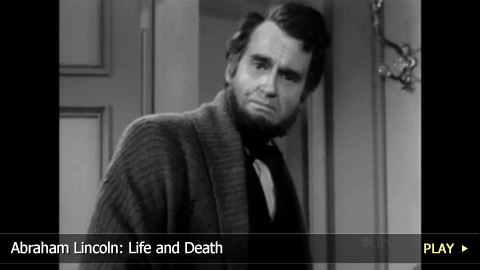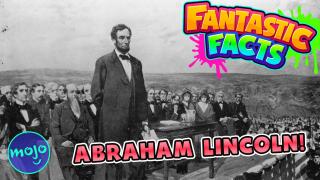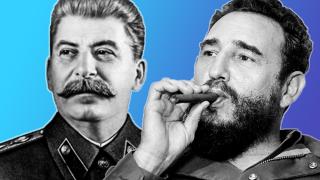Abraham Lincoln: Life and Death

Early Years
Top 10 Times Celebs Celebrated Too Early at Award Shows
Born February 12th, 1809 in Kentucky, Lincoln spent his youth on farms in rural America. Mostly self-educated, he began to study law in 1835, only after he was elected to the Illinois state legislature as a member of the Whig Party. This political group was a challenger to President Andrew Jackson’s Democrats.
Beginnings in Politics
By 1846, Lincoln had secured a spot in the U.S. House of Representatives. His opposition to President James Polk’s Mexican-American war damaged his reputation, and he decided not to seek re-election after his term. Meanwhile, he had also become a successful lawyer and continued to practice after his two-years in Congress.
The New Republican Party
Is There Life After Death in the Multiverse? | Unveiled
In 1854, Lincoln revisited politics to challenge the Kansas-Nebraska Act, which was essentially a pro-slavery bill. Shortly after, the Whig Party practically dissolved, and Lincoln went on to have an influential role in molding the new Republican Party. Ultimately he lost the nomination as its Vice Presidential candidate in 1856. However, he continued campaigning against slavery.
A Strong Orator
ABRAHAM LINCOLN! - Mini Fantastic Facts
In 1858, the Republicans nominated him to campaign for a place in the U.S. Senate as the representative of Illinois, against incumbent Democrat Stephen Douglas. Upon his selection, Lincoln strengthened his reputation as a strong public speaker by delivering one of his most famous speeches. Suggesting the country could not survive with both slave and free states, this speech contained the line “A house divided against itself cannot stand.”
Elected President
A fierce campaign followed, and included what are considered some of the most famous political debates in U.S. history. The Lincoln-Douglas debates were well-publicized at the time, and this raised Lincoln’s profile nationally. Though he ultimately lost the race, his interest in politics increased and in 1860, he was decisively elected the sixteenth President of the United States.
The U.S. Civil War
Top 10 Thought Provoking Life After Death Movies
Because of Lincoln’s election, and his stance against the expansion of slavery, a group of seven southern states declared they would secede from the Union to become the Confederate States of America. Soon after, Lincoln delivered his inaugural address in Washington D.C. Just two months later, Confederate forces initiated the start of the U.S. Civil War, which led to the secession of a number of additional states. Exercising exceptional Presidential control during the battle, Lincoln went on to issue the Emancipation Proclamation in 1862, effectively freeing millions of slaves. Following a great Union triumph, on November 19th, 1863 the President delivered one of the most-quoted speeches of all time: his Gettysburg Address.
Re-Election and Assassination
Top 10 People Who Survived the Most Assassination Attempts
Despite wavering support and the lingering war, Lincoln was re-elected by a landslide in 1864. When the Union finally won the war in April the next year, he was regarded as a hero by former slaves. However, he was still an enemy to many Confederates and on April 14th, 1865 he was assassinated by Confederate spy John Wilkes Booth while attending a play at Ford’s Theatre.
Legacy
Top 10 Scariest Kaiju On Monarch Legacy of Monsters
Leading the country through one of its most tumultuous times, Abraham Lincoln left an indelible impression as one of the greatest Presidents of all time, and an early champion of human rights.


 1
1
 0
0
 flagged
flagged






